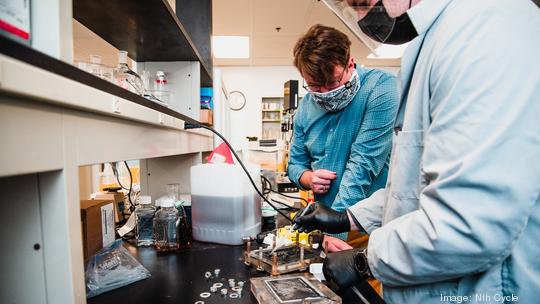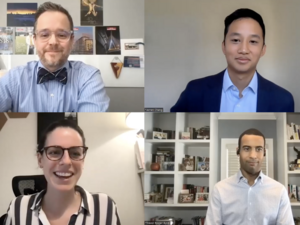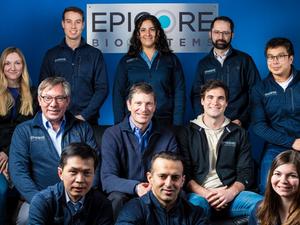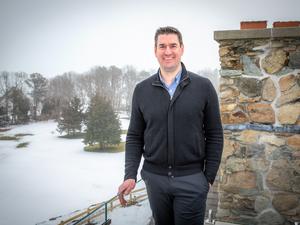
As the national movement to domesticate the rare earth minerals supply chain intensifies, Beverly-based Nth Cycle has raised $12.5 million in venture capital to launch its first three projects in battery recycling and mining over the next 18 months.
Nth Cycle’s mission is to help create a low carbon, cheap and domestic supply chain for rare earth minerals needed for the green energy transition. These minerals, including nickel and cobalt, are the building blocks of green energy products like wind turbines, electric vehicles and solar panels. Nth Cycle’s technology pulls these minerals from domestic mines and recycled products.
“We’ve developed a new technology that can reduce greenhouse gas emissions by 75%, a decrease in the overall energy use by 50%, and is much cheaper than the typical refining technology to be able to pull a lot of these needed materials out of things like spent lithium ion batteries, EVs coming off the road, laptops, as well as go and actually work with the mine operators,” said Megan O’Connor, co-founder and CEO, in an interview with BostInno.
Typically, the process to refine these materials involves pyrometallurgy. O’Connor described this process as a large furnace. The materials are burned at high temperatures, causing a large amount of carbon emissions. These furnace facilities can cost billions to build, O’Connor said, and are commonly used in Asia.
In contrast, Nth Cycle says it can do the same thing with what O’Connor describes as a 1,000-square-foot Brita filter.
“Our system is water filtration paired with electricity,” O’Connor said. “We have this solid waste, whether it’s dirt, ore straight from the ground, or a spent battery. We turn that into a water-based solution and we run that through our water filter which has carbon.”
The unit pushes different electric currents across the carbon filter, which selectively pulls out different materials.
“What Nth Cycle is enabling is allowing us to access the resources we have here with a new way to refine the materials,” O’Connor said. “We can do it much more cost effectively with a very low carbon footprint so we can get underneath those strict environmental regulations we have in the states and still provide this very valuable resource for the energy transition.”
The startup's Series A round was co-led by the investment arm of Frankstahl, one of the largest privately held steel distribution companies in Europe, and Volo Earth, a Colorado-based venture firm. Massachusetts-based Clean Energy Ventures and MassMutual’s MM Catalyst Fund also participated. The company previously raised a $3.2M seed round in April 2021.
Sign up for The Beat, BostInno’s free daily innovation newsletter from BostInno reporter Hannah Green
In an executive order last February, President Joe Biden called on federal agencies to strengthen the country’s supply chains. The order tasked the energy secretary with identifying risks for the high-capacity batteries and electric-vehicle batteries supply chains and asked the defense secretary to do the same for rare earth mineral supply chains.
A new bipartisan Senate bill aims to intensify the push to domesticate rare earth mineral production. The bill would ban defense contractors from sourcing these materials from China. The bills co-sponsor Sen. Mark Kelly, a Democrat representing Arizona, said relying on rare earth minerals from China is “a national security risk.”
Nth Cycle’s latest funding round will help the startup launch its first projects in this space. O’Connor said the company will roll out a battery recycling project this quarter, and the other two projects will be in recycling and mining. Commercial partnerships will also be announced with each project’s rollout.
The company, which has 10 employees, is expected to use some of the funds to hire another 12 people this year.
“We need to figure out a way to refine materials better because we unfortunately need to continue [mining] to have enough materials for the transition,” O’Connor said. “We’re just very excited to a part of that solution.”








